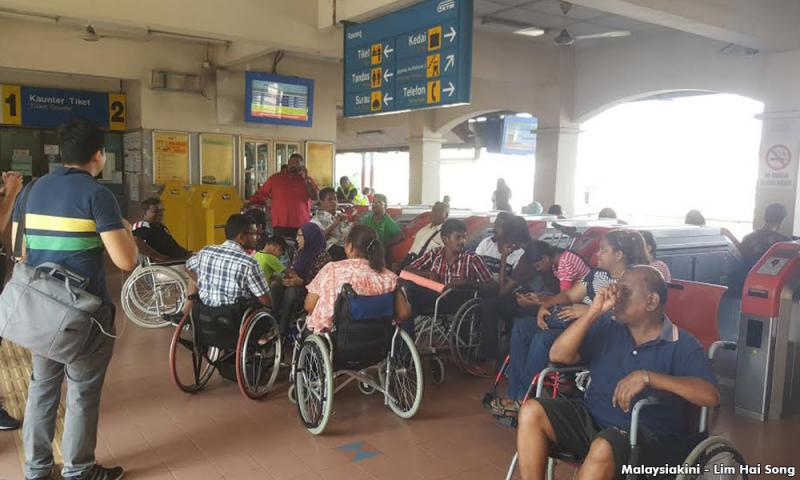Ensuring the future of all disabled Malaysians
LETTER | The International Day of Persons with Disabilities is on Dec 3, and the theme for this year's celebration is “Promoting the participation of persons with disabilities and their leadership: taking action on the 2030 Development Agenda”.
The theme highlights the empowerment and inclusion of persons with impairment and/or chronic illness in all stages of planning and implementation in order to achieve all goals underlined in the Sustainable Development Goals.
The message is simple and clear but the question remains, does the Malaysian government recognise and willing to take the necessary steps to embody this aspiration?
Before promoting the participation of persons with impairment and/or chronic illness in the decision-making process and national development agenda, the government and the society must first recognise the capability and potential contribution of these persons.
In many instances, the government and the society are more interested to hear and rely on the views of non-disabled ''experts'', rather than directly asking disabled activists, disabled scholars, and disabled leaders on the field. Many disabled young persons, if not most of them, who have the knowledge still find it difficult to voice out their concerns and ideas.
Recently, we can observe a series of engagement and consultation programmes carried out by many government agencies. Some representatives from disabled people’s organisations were also invited. This certainly is a good sign.
However, the government must always be mindful so these engagement efforts will not be mere political gestures or desperate response when some groups demonstrated.
The opportunity should be widened and representatives from disabled people’s organisations should be part of the must-invite list. The engagement and consultation should not only be limited to issues affecting persons with impairment and/or chronic illness directly, instead, the disabled community must also be involved in all national-relevant plans.
There are two key issues we must really think about; the nature of participation and representation. When representatives from disabled people’s organisations attend a workshop or meeting, are they just there as input-providers, or are they also making the final decision?
Representation is equally important and demands critical reflection from all parties. Senior activist Mohammad Faizal Che Yusuf emphasised the need to “put the right persons at the right place”.
Disabled people’s organisations also bear responsibility in enhancing their leadership and nurturing future leaders in their community. Ideally, all persons with impairment and/or chronic illness must understand and embody the meaning of inclusive society through the lens of the human rights model of disability, not keep falling back to the charity mindset.
To this end, disabled people’s organisations must carry out continuous education programmes for their members to cultivate critical consciousness about disablement.
Disabled leaders and activists must also develop and re-develop critical skills such as human rights awareness, political literacy, effective advocacy, legal litigation and so on. Moreover, they must reanalyse their position in the local civil society movement.
The keyword here is capacity building.
With all the international and regional instruments we have now, we must walk the talk and work together to achieve them. There will definitely be a lot of hurdles when we are fighting for a good cause, but we can always find a way to overcome them. No more excuses.
May all persons and children with impairment and/or chronic illness in Malaysia have a better and meaningful future. May this beloved country become truly inclusive for all.
Happy International Day of Persons with Disabilities 2019.
The views expressed here are those of the author/contributor and do not necessarily represent the views of Malaysiakini.
RM12.50 / month
- Unlimited access to award-winning journalism
- Comment and share your opinions on all our articles
- Gift interesting stories to your friends
- Tax deductable
